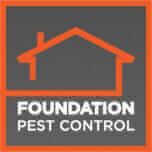Invasive Insect Species In Tennessee Part 3
Final Installment of Invasive Insect Species in Tennessee
It is time to wrap up the invasive insect species. If you missed part one or two check them out. With its unique climate, rich open land and buzzing metropolises, Tennessee is a prime habitat for many different types of insects and pests. By knowing what’s buzzing in your backyard, you’ll be better able to determine treatment next steps, and help curb issues before they become full-scale infestations.
Common insects to watch for…
PINK HIBISCUS MEALLYBUG
Just 3 mm long and pink with a waxy secretion on top, the Pink Hibiscus Meallybug lives in bark crevices, leaves, under bark and in soil and fruit. Once aligned with a host, these insects feed on the soft tissue of plants, injecting toxic saliva that immediately poisons plants. If impacted by these insects, leaves often curl and contort—this is a telltale sign of these meallybugs.RICE CUTWORM
Found in vegetables and other field crops, Rice Cutworms aren’t as common as other area pests. Like other cutworms, small, caterpillar-looking Rice Cutworms live in soil or under litter or leaves, then emerge in the evening to feed on plants and crops.SIBERIAN SILK MOTH
Siberian Silk Moths are considered the most aggressive defoliator of conifers—a type of tree that includes pines, firs and spruces. A significant infestation can wipe out an entire forest. Fortunately, these types of infestations aren’t common, occurring once every 10 to 11 years, always following a two- to three-year period of dry weather.
Siberian Silk Moths can have wingspans up to 80 mm, and can be yellow-brown, gray or very dark brown with dark stripes on their wings.
SIREX WOODWASP
Though only discovered in Florida in 1998, the Small Hive Beetle has already made its way to west and middle Tennessee. Now, area residents are focused on controlling the spread—these pests can damage combs, honey and pollen. Enough Small Hive Beetles in one location may even drive bees to abandon their hive, which can lead to pollination issues and honey shortages.VIBURNUM LEAF BEETLE
A single Viburnum Leaf Beetle can lead to massive defoliation, killing plants and destroying gardens. These beetles tend to emerge in the early spring—check small twigs from previous seasons for signs of this pest. Look specifically for larvae or skeletonized leaves—adults and larvae feed on leaves between the midrib and veins. Left to their own devices, by mid-summer these beetles will continue to feast on leaves, moving into the tree.
SUMMER FRUIT TORTIX MOTH
Summer Fruit Tortix Moth caterpillars hibernate under dead leaves or buds. Once ready, the yellow-green moths emerge, then burrow into fruit buds or blossom trusses before webbing leaves together. Females can lay up to 100 eggs on the surface of a single lead, with caterpillars developing in the summer. In the fall, moths can eat leaves and fruit.SOYBEAN APHID
Considered a major agricultural pest, Soybean Aphids deed inside developing seeds and seedpods of certain beans and peas. Left undetected, these pests can destroy entire crops of beans, cowpeas, garden peas and pigeon peas.
Don’t put your home or family at risk. Get in touch with Foundation Pest Control to discuss your termite treatment options. We’ll help you find the most economical and effective solution for your situation.
Share This Article

